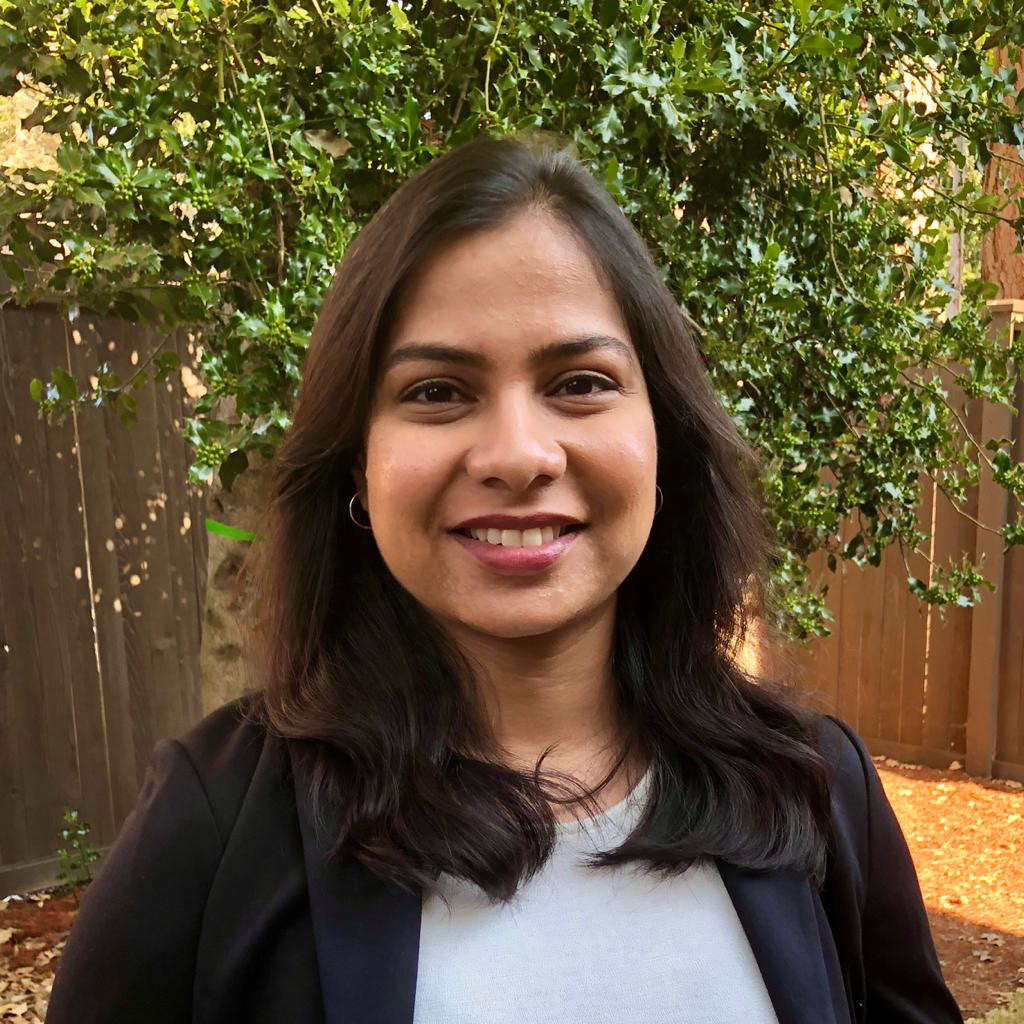International Workshop on Applied Machine Learning for Intelligent Energy Systems (AMLIES)
Co-located with ACM e-Energy Conference 2021, Torino, Italy
Overview Call for Papers Key Dates Keynote Speakers Schedule Organizing Committee Technical Program Committee Contact

Overview
The capacities of societal-scale infrastructures such as power grids, smart buildings, transportation and other energy systems are rapidly increasing, leading to Cyber-Physical Systems that can deliver human-centric values and energy services while enhancing efficiency and resilience. Technological advancements in sensing, learning, control and optimization hold enormous capacity to deliver intelligent energy systems of the future that are empowered to address pressing societal issues such as energy crisis, climate change and environmental pollution. There has been an increasing interest to use Machine Learning, Data Analytics and Internet of Things (IoT) in diverse energy systems including smart buildings, power systems, transportation systems etc., to drive applications related to modelling, control, fault and anomaly detection and optimization of energy, space and cost amongst others. This has led to improved energy efficiency, occupant comfort and productivity in smart buildings and enhanced system robustness and resilience in power systems.
However, the application of machine learning to these energy systems has also opened up new research challenges. To perform optimally, these algorithms require substantial amount of labelled training data. Collection and labelling of the data in complex systems such as power grids and buildings with complicated energy usage behaviors require considerable amount of expert knowledge and is often prone tosecurity and privacy issues. Efficiently using the available energy data for inference, decision and control can prove beneficial in this scenario. Another challenge is the lack of direct measurements for important drivers of energy consumption, such as occupancy. Data from opportunistic sources (such as images or communication network data) can be adopted to overcome this challenge. This workshop seeks to bring together researchers to discuss such underlying challenges related to the application of Machine Learning to Energy Systems, including smart buildings, smart grid and transportation systems and to present proposed and ongoing work to address them.
Contact: amlies.workshop@gmail.com
Call For Papers
The workshop invites original papers that were not previously published and are not currently under review for publication elsewhere.
Topics of interest for this workshop include (but are not limited to) the following:
- Unsupervised Learning and few-shot learning for intelligent energy systems
- Transfer Learning, data-efficient learning and domain adaptation techniques for energy systems
- Generalized learning frameworks for energy systems enabled by Meta Learning and Multitask Learning
- Application of Machine Learning to fault and anomaly detection, performance benchmarking, measurement and verification (M&V), and design and retrofit decision support for energy systems
- Data security and privacy mechanisms in energy data analytics
- Reinforcement Learning in dynamic and uncertain environments (e.g., renewable integration)
- Modeling and decision support for building to grid interaction enabling grid interactive efficient buildings (GEB)
- Vulnerability analysis and robust decision-making against cyberattacks
- Data-efficient occupant behavior, indoor air quality and thermal comfort modeling, monitoring and control for buildings
- Certification and standardization aspects with respect to machine learning applied to energy systems
- Representation Learning for energy societal networks/ social games
Two types of contributions are solicited:
- Full papers, up to 8 pages in 9-point ACM double-column format (excluding references) and unlimited number of pages for appendices and references, single-blind.
- Short papers, up to 4 pages in 9-point ACM double-column format (excluding references) and unlimited number of pages for appendices and references, single-blind.
The submission must be in PDF format and be formatted according to the official ACM Proceedings format. Papers that do not meet the size and formatting requirements may not be reviewed. Word and LaTeX templates are available on the ACM Publications Website. Submission implies the willingness of at least one author to register and present the paper at the workshop.
Submission portal: https://amlies21.hotcrp.com
Key Dates
- April 16, 2021: Paper submission deadline
- May 10, 2021: Author Notification
- May 18, 2021: Camera ready submission deadline
- June 28, 2021: Workshop
Keynote Speakers
-
Draguna Vrabie, Pacific Northwest National Laboratory
Keynote Title: Machine Learning Methods for Building Control | abstract
The past decade has witnessed significant research contributions in model-based predictive control for buildings to enable energy-efficient and grid responsive operation. Most recently, data-driven perspectives to building control design are gaining interest. In this talk, I will first offer a broad view of the evolving interest in advanced control for buildings and discuss some key insights. Then, I introduce our recent work on modeling dynamic systems with deep learning representations that embed domain knowledge. Finally, I will introduce differentiable predictive control (DPC), a data-driven approach that uses physics-informed deep learning representations to synthesize predictive control policies. I illustrate the methodology with application examples of energy-efficient buildings.
Bio: Draguna Vrabie is a chief data scientist in the Data Sciences and Machine Intelligence Group at Pacific Northwest National Laboratory. She serves as Team Lead for the Autonomous Learning and Reasoning Team. At the intersection of control system theory and machine learning, her work is on the design of adaptive decision and control systems. Her current focus is on deep learning methodologies and algorithms for high-performance cyber-physical systems. Before joining PNNL in 2015, she was a senior scientist at United Technologies Research Center, East Hartford, Connecticut. Vrabie holds a doctorate in electrical engineering from the University of Texas at Arlington and an ME and BE in automatic control and computer engineering from Gheorghe Asachi Technical University, Iaşi, Romania.
-
Michal Kvasnica, Slovak University of Technology in Bratislava
Keynote Title: Building a Microgrid Control System from Scratch: Challenges and Opportunities | abstract
This talk will tell a real-life story of designing an optimization-based control system for microgrids that include renewable energy sources and battery storages. Two sets of problems will be discussed: a static task of appropriately sizing the equipment where we optimize the overall economics of the system, and a dynamic task of controlling the microgrid in real time in a predictive fashion. We show that the underlying control design is just a small piece of the puzzle. The business success of such solutions hinges upon the quality of predictive data, such as weather, solar, and load forecasts. We show how outlier detection, implemented by a machine learning algorithm, can be used to automatically determine when the forecasting models start to diverge from reality, indicating a need for them to be re-trained. Data from a pilot installation of such an advanced solution will be provided to demonstrate business value of the fusion of rigorous optimization techniques with advanced machine learning methods.
Bio: Michal Kvasnica is the head of Institute of Information Engineering, Automation, and Mathematics at the Slovak University of Technology in Bratislava, Slovakia. Having obtained his PhD from ETH Zurich, Switzerland, he has 20 years of experience in designing and implementing optimization-based solutions with applications in automotive, energy, and process industries. His research interests include decision making and control supported by artificial intelligence, embedded optimization and control, security and safety of cyber-physical systems, and control of human-in-the-loop systems.
-
Jie Tan, Google Brain
Keynote Title: Adaptive Power System Emergency Control using Deep Reinforcement Learning | abstract
Deep reinforcement learning (DRL) has achieved super-human performance in a wide variety of games and robotic control problems. Can we apply the same technique to control power grids? In this talk, I will share our experience about the challenges for applying DRL to power grid systems and our latest progress to overcome these challenges. I will give a brief introduction of DRL, and present two case studies on power system emergency control. In the first study, we applied Deep Q Network (DQN) to solve the under-voltage load shedding problem for a small-scale IEEE-39 bus system. The learning is automatic and the learned policies significantly outperform the UVLS relay and the model-predictive control baselines. In the second study, we developed a scalable learning framework for a much larger synthetic Texas 2000 bus system.
Bio: Jie Tan is a staff research scientist and the Tech Lead Manager of the Robot Locomotion and Safety teams at Google Brain. His research is to develop safe machine learning techniques and apply them to real-world systems, such as robots and power grids. His research interests include AI safety, machine learning, robotics, power grids and simulation. Before joining Google, Jie got his PhD at Georgia Institute of Technology.
-
Tansu Alpcan, University of Melbourne
Keynote Title: Machine Learning for Voltage Estimation and Control in Distribution Grids | abstract
Distributed Energy Resources (DER) such as rooftop solar PV drive the transformation towards greener and smarter power systems in Australia. DER are deeply embedded in low-voltage distribution networks, which were not designed for this purpose. Hence, there is an increasing need for active voltage regulation at the distribution level. Large-scale smart meter deployments enable data-driven machine learning approaches to address this problem. This talk first gives an overview of modern distribution grids and data-driven machine learning methods. Next, recent research on applying deep learning methods to estimate local voltages even when limited information is available on the distribution network parameters is presented. This is followed by research results on active control of voltages using model-free reinforcement learning methods. In both cases, various levels of PV deployment, e.g., in residential settings are considered. The talk concludes with brief remarks on future research directions.
Bio: Tansu Alpcan received the Ph.D. degree in Electrical and Computer Engineering from University of Illinois at Urbana-Champaign (UIUC) in 2006. His research interests include applications of control, optimisation, and game theories, and machine learning to security and resource allocation problems in communications, smart grid, and Internet-of-Things. He chaired or was an Associate Editor, TPC chair, or TPC member of several prestigious IEEE workshops, conferences, and journals. Tansu Alpcan is the (co-)author of more than 150 journal and conference articles as well as the book “Network Security: A Decision and Game Theoretic Approach” published by Cambridge University Press (CUP) in 2011. He co-edited the book “Mechanisms and Games for Dynamic Spectrum Allocation” published by CUP in 2014. He has worked as a senior research scientist in Deutsche Telekom Laboratories, Berlin, Germany (2006-2009), and as Assistant Professor (Juniorprofessur) in Technical University Berlin (2009-2011). He is currently with the Dept. of Electrical and Electronic Engineering at The University of Melbourne as a Professor and Reader.
Workshop Schedule
The coloured entries correspond to 29th June at the dateline mentioned. All other entries correspond to 28th June at the mentioned dateline.
| PDT | EDT | London Time | HKT (29th) | AEST (29th) | Programme |
| 9.00-9.05 | 12.00-12.05 | 17.00-17.05 | 00.00-00.05 | 02.00-02.05 | Opening Remarks |
| 9.05-9.50 | 12.05-12.50 | 17.05-17.50 | 00.05-00.50 | 02.05-02.50 | Keynote 1: Draguna Vrabie, Pacific Northwest National Laboratory |
| 9.50-10.35 | 12.50-13.35 | 17.50-18.35 | 00.50-01.35 | 02.50-03.35 | Keynote 2: Michal Kvasnica, Slovak University of Technology in Bratislava |
| 10.35-10.50 | 13.35-13.50 | 18.35-18.50 | 01.35-01.50 | 03.35-03.50 | Coffee Break |
| 10.50-11.10 | 13.50-14.10 | 18.50-19.10 | 01.50-02.10 | 03.50-04.10 | Paper 1: Spatio-Temporal Missing Data Imputation for Smart Power Grids |
| 11.10-11.30 | 14.10-14.30 | 19.10-19.30 | 02.10-02.30 | 04.10-04.30 | Paper 2: Additive Gaussian process prediction for electrical loads compared with deep learning models |
| 11.30-11.40 | 14.30-14.40 | 19.30-19.40 | 02.30-02.40 | 04.30-04.40 | Paper 3: Adapting Surprise Minimizing Reinforcement Learning Techniques for Transactive Control |
| 11.40-12.00 | 14.40-15.00 | 19.40-20.00 | 02.40-03.00 | 04.40-05.00 | Paper 4: One model fits all: Individualized household energy demand forecasting with a single deep learning model |
| 12.00-13.30 | 15.00-16.30 | 20.00-21.30 | 03.00-04.30 | 05.00-06.30 | Lunch Break |
| 13.30-14.15 | 16.30-17.15 | 21.30-22.15 | 04.30-05.15 | 06.30-07.15 | Keynote 3: Jie Tan, Google Brain |
| 14.15-14.35 | 17.15-17.35 | 22.15-22.35 | 05.15-05.35 | 07.15-07.35 | Paper 5: Hybrid Approach for Digital Twins in the Built Environment |
| 14.35-14.45 | 17.35-17.45 | 22.35-22.45 | 05.35-05.45 | 07.35-07.45 | Paper 6: Towards Learning-Based Architectures for Sensor Impact Evaluation in Building Controls |
| 14.45-15.00 | 17.45-18.00 | 22.45-23.00 | 05.45-06.00 | 07.45-08.00 | Coffee Break |
| 15.00-15.45 | 18.00-18.45 | 23.00-23.45 | 06.00-06.45 | 08.00-08.45 | Keynote 4: Tansu Alpcan, University of Melbourne |
| 15.45-16.05 | 18.45-19.05 | 23.45-00.05 (29th) | 06.45-07.05 | 08.45-09.05 | Paper 7: End-to-End Framework for Imputation and State Discovery in Longitudinal Energy Data |
| 16.05-16.15 | 19.05-19.15 | 00.05-00.15 (29th) | 07.05-07.15 | 09.05-09.15 | Paper 8: Using Meta Reinforcement Learning to Bridge the Gap between Simulation and Experiment in Energy Demand Response |
| 16.15-16.20 | 19.15-19.20 | 00.15-00.20 (29th) | 07.15-07.20 | 09.15-09.20 | Closing Remarks |
Organizing Committee
|
University of California, Berkeley |
Pacific Northwest National Laboratory |
IBM Research, Australia |
University of California, Berkeley |
Technical Program Committee
|
|



